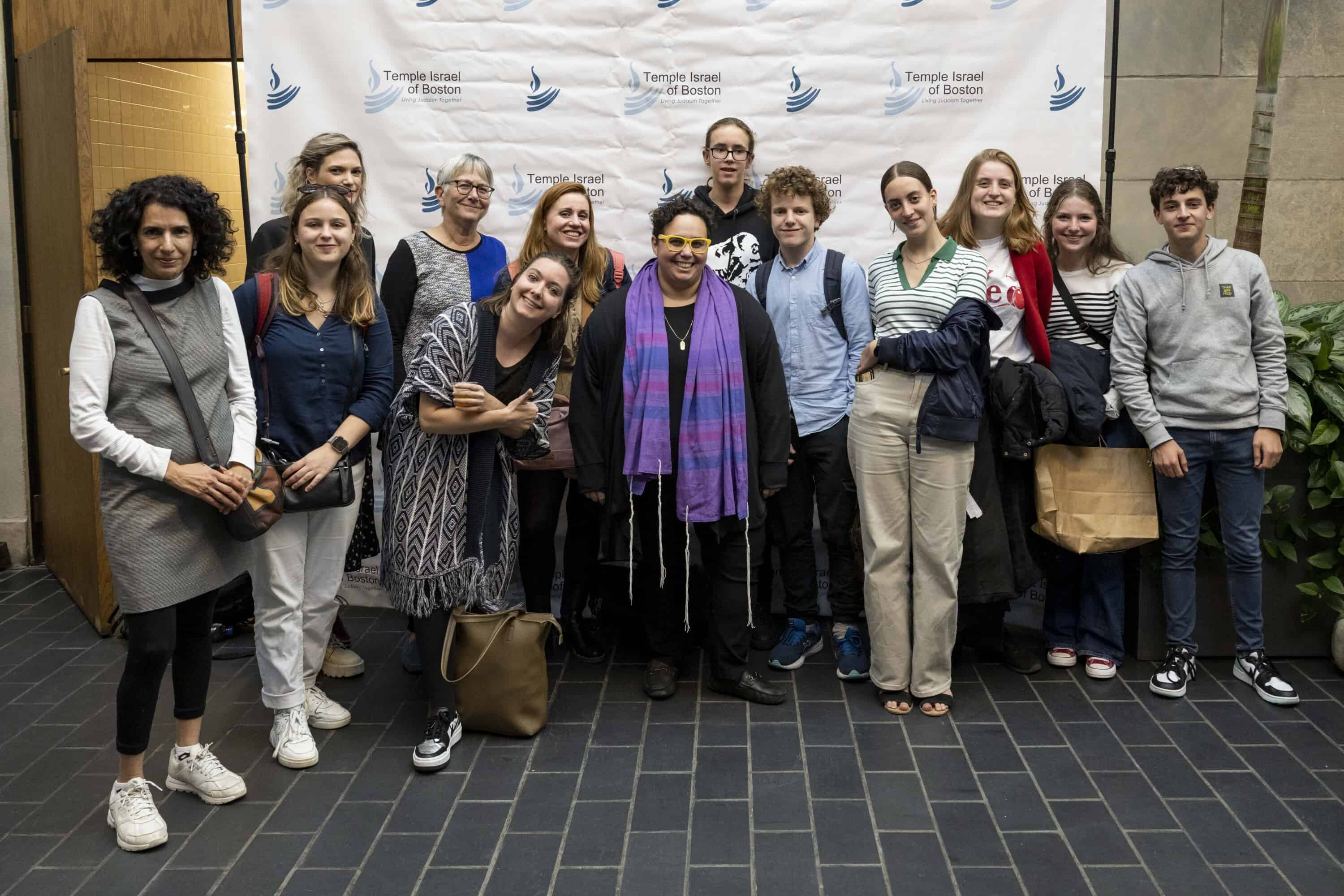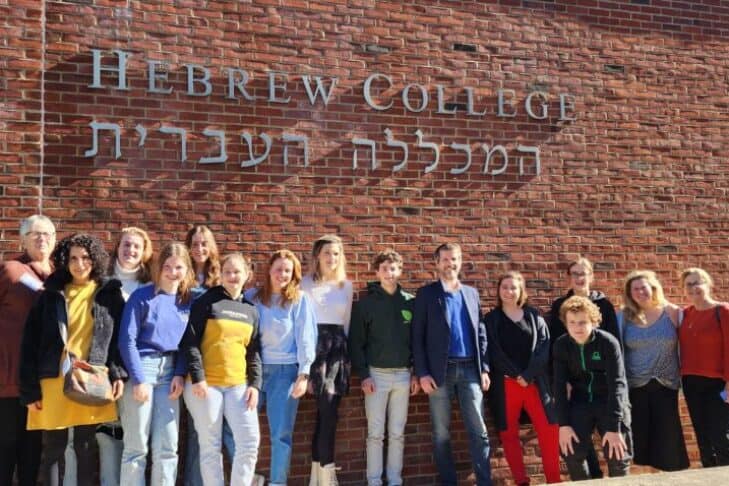Eleven educators and their rabbi, Joram Rookmaaker, from the largest Jewish community in the Netherlands, the Liberaal Joodse Gemeente Amsterdam, invest in the vitality and future of the Dutch Jewish community through an intensive professional development week at Hebrew College in Newton Centre, Massachusetts. With the current Jewish population of the Netherlands totaling less than 35,000, professional development opportunities like this carry substantial import for the long-term future of the community.
After researching the best international programs to inform their education practices, they looked to Hebrew College’s MaTaRoT program as a pedagogical model and decided to bring their educators to Boston to learn first-hand. “[We wanted to know] where in the world we could find a way to improve our education. That’s how we found Hebrew College,” said Rabbi Rookmaaker.
“Hebrew College’s MaTaRoT Center for Professional Learning & Leadership is delighted and honored to be hosting colleagues from the progressive Amsterdam Jewish community (Liberaal Joodse Gemeente Amsterdam) for this week, including both veteran educators and teen madrichim,” said Hebrew College vice president Dr. Susie Tanchel.
During the Shoah, deported Dutch Jews had to maintain payments for property—payments that until recently, remained in the possession of the city of Amsterdam. Recent political changes, however, have redirected these payments by deported (and killed) Jews into an investment in the Amsterdam Jewish community. Focusing on the future of their own Jewish community, Liberaal Joodse Gemeente Amsterdam used some of the grant funds to send many of their younger educators to Boston to learn pedagogy, techniques and observe project-based learning (PBL) in action in Boston area religious schools and afterschool programs. “These are the future leaders. It’s an even more powerful experience for them,” said Rabbi Rookmaaker.
One of those educators, Benjamin Bernfeld, who teaches children around age seven, said, “We’ve learned we’ve actually incorporated a little bit of PBL already, but now we are learning what actually we are doing and how to implement more of it.”
He added: “It’s tough to teach younger kids who sometimes don’t remember as well as we do. [PBL and innovative storytelling] that triggers all the senses rather than just one can help this problem. We can’t wait to implement these in our own programs.”
Jacco Friedeberg, a seventh-grade teacher, said: “Our trip’s been great. [Here at Hebrew College], today was the first day we got to know PBL. I’m starting to go through the mindset shift from traditional projects to PBL.”
In addition to Hebrew College, the group from Liberaal Joodse Gemeente Amsterdam is visiting several local shuls to discern different possible implementations of project-based learning and to learn from the differences between our communities. “One thing we are looking at is how does Jewish life look when there are ten times more Jews in the Boston area than in the Netherlands altogether? For example, we went to tefillah outside the other day. We can’t do tefillah in public spaces since we are under the constant protection of military police as a safety measure,” said Rabbi Rookmaaker.

The group arrived in Boston this past Saturday, and celebrated Simchat Torah at Temple Israel of Boston, where Hebrew College 2015 graduate Rabbi Suzie Schwartz is the associate rabbi and director of congregational learning.
This post has been contributed by a third party. The opinions, facts and any media content are presented solely by the author, and JewishBoston assumes no responsibility for them. Want to add your voice to the conversation? Publish your own post here. MORE


